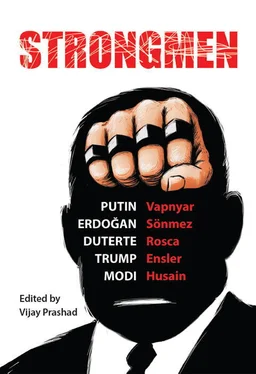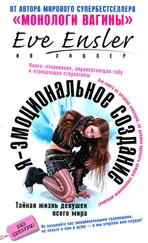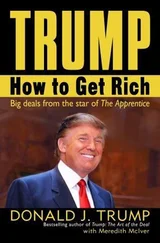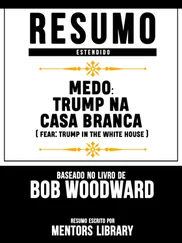Power can do all kinds of things. It can create ambitions that are easily thwarted by internal rivalries. BJP leaders Shankarsinh Vaghela and Keshubhai Patel first clashed, and then later Vaghela rebelled, and then Patel slipped. Modi was always in the shadows, whispering about their inadequacies and disloyalties. Patel became the chief minister in 1995, which sparked Vaghela’s rebellion. The BJP high command sensed Modi’s hand in these intrigues and shifted him to Delhi. It did not help. Modi had the pulse of his party. Vaghela formed a government in 1996 with Congress Party support, which allowed Modi to tell everyone in Delhi that he—Modi—was the first to sniff disloyalty in Vaghela. He would do the same to Patel after his government ran into problems with setbacks in local elections and two by-elections—an indictment of the inadequate relief work done in the aftermath of the 2001 Kutch earthquake. Modi whispered about Patel’s failures, just as he had done about Vaghela.
Intrigue had always paid off for Modi. The campaign against Vaghela earned Modi the post of RSS organizational secretary in 1998. This allowed Modi to be the main liaison between the RSS and the BJP as well as the other Sangh Parivar organizations. Modi took to that job with gusto. He enjoyed the limelight, coming on television and offering his harsh views on world affairs. In a television debate about provocations from Pakistan, Modi said, “Chicken biryani nahi, bullet ka jawab bomb se diya jayega” (We won’t give them chicken biryani, we will respond to a bullet with a bomb). This attitude of the hammer pleased the BJP base and the RSS brains. When Patel fell, Modi replaced him as chief minister of Gujarat.
Modi took charge of Gujarat in the immediate aftermath of 9/11 and the start of the War on Terror. Two months later, there was an attack on the Indian Parliament and a military buildup at the India-Pakistan border, with Gujarat as one of the flashpoints. Modi was prepared. He had his metaphoric bombs in hand. Older attitudes against Muslims—articulated by the founders of the RSS and cultivated by their followers—came to a head. They were sanctified by the United States, whose War on Terror had a decidedly anti-Muslim flavor. The Gujarat pogrom that followed the Godhra incident was part of this atmosphere. It is by now clear that the Gujarat government—with Modi at its head—was complicit in the riots. Inquiries that took place, which exonerated the government, were undermined by political pressure. These riots changed India’s political landscape, as well as Modi’s relationship to the Indian polity, forever. It was a watershed moment—and Modi understood that.
Modi never apologized for the pogrom. He remained unapologetic, even belligerent. This was something new. Politicians typically apologized for serious breaches, took some kind of responsibility and either resigned or were forgiven. Here was a leader with a massacre under his watch who remains brazen about it. Modi became a hero to the radical Right, the section that wanted this kind of bravura to be the mood of their leader. Modi cemented the loyalty of that growing section of the populace, and of the RSS and BJP cadre.
But he needed more to extend the reach of his power. He needed the backing of industrialists and financiers, of the big bourgeoisie. In 2003, the Confederation of Indian Industries (CII) hosted a special session between Modi and the top business elites. Adi Godrej (Godrej Industries) and Rahul Bajaj (Bajaj Industries) publicly censured Modi. Modi sat quietly, stewing, went to the podium and said, “Others have a vested interest in maligning Gujarat. What is your interest?” In a bout of Gujarati sub-nationalism, Modi surrounded himself with Gujarat’s industrialists—Gautam Adani (Adani Group), Indravadan Modi (Cadila Pharmaceuticals), Karsan Patel (Nirma Group), and Anil Bakeri (Bakeri Engineers). They formed the Resurgent Group of Gujarat and publicly forced CII director-general Tarun Das to apologize and censure Godrej and Bajaj. Modi smirked in the wings. Modi came up for re-election in 2007. He wanted to cement the backing of the business elites. A glittering investment camp—Vibrant Gujarat Summit—became a campaign event for Modi. Ratan Tata (Tata Sons) endorsed him at this summit. It was enough. Modi won re-election. He morphed from the RSS man to a development-friendly business leader. The RSS man became the businessman’s man.
More than anything Modi became Modi’s man. He hastily isolated all his rivals—party elders were retired off to be part of the Margdarshak Mandal (Guiding Team), his peers were shifted away so Modi’s henchmen could gather around, and his challengers felt the wrath of his diehard fans, the Bhakts and trolls who keep Modi’s response after the Gujarat pogrom close to their hearts. The media owned by friendly corporate houses began to project Modi as a savior, as a larger than life figure. It was no surprise when Modi declared that he had a fifty-six-inch chest—the scale of his ambitions could not be contained in anything less than that. Modi’s closest ally, Amit Shah, helped run the ground game, which included making the role of Muslims in elections marginal (this was the actual Gujarat Model , which was exported to the rest of the country after 2014). Between seduction and intimidation, Modi coasted to the prime ministership in 2014. His party won less than a third of the votes, and benefitted from the first past the post system. You wouldn’t know that. The celebrations suggested that Modi had won in a landslide. How could this behemoth, this savior, win anything less than the hearts of all Indians?
Modi’s Political Grammar
An old Persian fable—“The Devil’s Syrup”—highlights the purpose of the Devil: to disrupt, create chaos, and gain power through anarchy. An honest man enters a confectioner’s shop. The Devil quietly drips a bit of sugar syrup on the confectioner’s balding head. A fly sits on his head and begins to suck the syrup. The honest man sees the fly, takes off his shoe and whacks the fly on the confectioner’s head. The confectioner is angry. He doesn’t believe that the honest man was merely hitting the fly. The honest man says that was the only reason, but the confectioner does not believe him. A fight ensues. Others arrive. The shop is destroyed.
“The Devil’s Syrup” is a story about the universality of deception. The syrup of propaganda produces disaffection, which erupts in an alternative narrative, points to enemies, disorients people, and delivers power to the deceivers. Truth is suppressed, incomplete information is provided, and lies are dressed up to look like “facts.” An emotional not a rational response is evoked by the deceiver.
Deception is one part of the grammar of Modi’s politics. Another is the production of division and of fear. These are the pieces of Modi’s strategy, what has enabled Modi to come to power.
There is a classic tale of the Umayad Caliph Muawiya who wanted to discredit the house of Abdul Muttalib, Muhammad’s patriarch. He asked his counsel Amr bin al-Aas to find a man from the house of Abdul Muttalib who had a character flaw. Amr recommended Aqeel bin Abi Talib, Muhammad’s cousin. When Aqeel visits Muawiya’s court, the Caliph had the Surah al-Masad (from the Quran) recited in the court:
May the hands of Abu Lahab be ruined, and ruined is he. His wealth will not avail him or that which he gained. He will [enter to] burn in a Fire of [blazing] flame and his wife [as well]—the carrier of firewood. Around her neck is a rope of [twisted] fibre.
Then Muawiya mocks Aqeel by saying, “Don’t you know Aqeel that the Abu Lahab mentioned in these verses is your paternal uncle?” Aqeel immediately quips, “Why don’t you disclose that the carrier of firewood, the woman mentioned in these verses is your paternal aunt?”
Читать дальше











